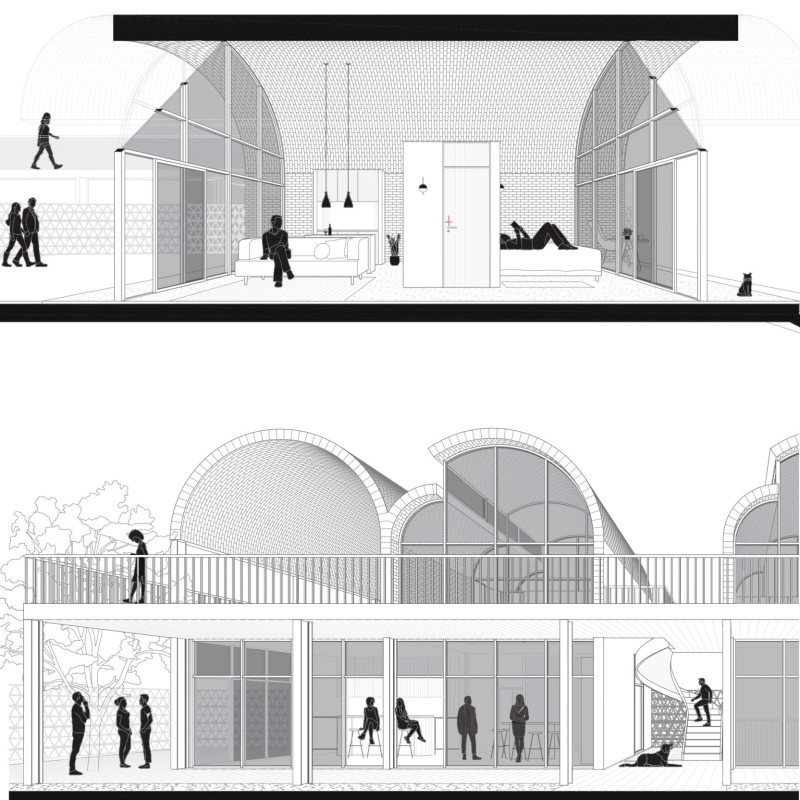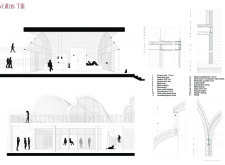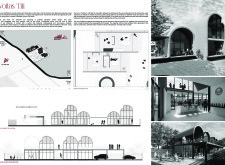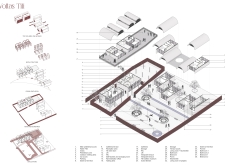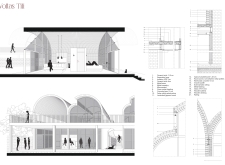5 key facts about this project
Sited strategically, the architecture features vaulted roofs that draw inspiration from traditional agricultural buildings while incorporating contemporary design principles. The open floor plans create fluid transitions between indoor and outdoor spaces, facilitating a connection to the surrounding vineyard. Extensive use of glass in the façades allows for natural light penetration and offers unobstructed views of the landscape, enhancing visitor experience.
The materiality of the project plays a critical role in its sustainability. The primary materials utilized include ceramic bricks, gypsum plasterboard, microcement, and various forms of metal and glass. This selection not only supports the thermal efficiency of the building but also connects it visually and physically to its context. Each material choice reflects a commitment to local sourcing and environmentally responsible construction practices.
The integration of outdoor spaces is another noteworthy feature. Terraces and patios are strategically designed to encourage social interaction and facilitate activities associated with wine tasting and culinary exploration. This aspect of the design is integral to the project’s function as it creates an inviting atmosphere for visitors.
The emphasis on passive design strategies is a distinctive approach within this project. Systems for cross ventilation and natural light management minimize the need for mechanical heating and cooling. This not only reduces energy consumption but also aligns with broader goals of sustainability within contemporary architectural practice.
For readers seeking more in-depth information on the Voltas Tili project, exploring the architectural plans, architectural sections, and architectural designs will provide deeper insights into the unique features and design methodologies employed in this project. The careful consideration of both form and function in this design exemplifies a modern interpretation of architectural ideas rooted in tradition and environmental awareness.


